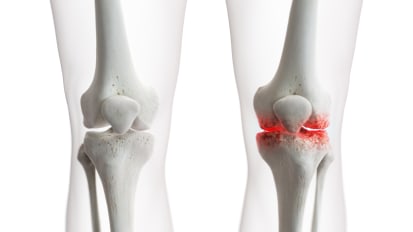“Mobility is a very personalized and individualized thing, but what a lot of patients receive elsewhere is a generic type of prescription for equipment,” says Daniel Kim, MD, a physical medicine & rehabilitation specialist at Ohio State.
A unique Ohio State clinic is filling those gaps to give patients the tools they need to live their everyday lives with as much mobility and communication as possible, and training them on how to use specialized assistive equipment.
Right now, we're in the assistive technology center. Basically, what we're trying to dio is really pay personalized attention to our patients in terms of what their mobility equipment needs. Are we really try Thio understand what kind of lifestyle they're leading? What kind of activities? Um, they like to engage in what their goals are, if there's any holes that might be there and their safety, their independence or their comfort, and we try to fill those holes up with the appropriate equipment. Mobility in general is a very personalized and individualized thing. But what a lot of patients receive elsewhere is a very generic type of prescription for equipment. And if the prescriber doesn't really know about the equipment and the patient themselves, oftentimes they're not experts in the equipment either. What ends up happening is a lot of times in the community the patient will just receive sort of a generic type of wheelchair or scooter or power wheelchair and really not a whole lot of attention is paid. Thio. How that individual patient uses that equipment. Uh, there's also I think, ah, little bit of a lack of education in terms of teaching the patient how to properly use that equipment in order not to hurt themselves or others. You really, really try to pay individual attention to that patient's needs and and match that up to the proper components. I think there's a huge need all over the world. You know, anywhere that there are people that are looking to be mobile and and need mobility in their lives to maintain a high quality of life, toe work, to take care of their family, to do the things they enjoy. There's a huge deficit in terms of those types of people getting the right equipment and really understanding that you know their quality of life can be better than what it is currently. If you think of medications, there are always constantly new generations of different medications that are coming out and as a as a physician, as a health care provider, you know, if I'm prescribing those medications, it's my responsibility to keep up to date to them. Um t know what are the different options and what is the best option out of those options for my individual patient? And that's kind of what we're also looking to do with the mobility equipment is to really keep up to date with it and really make sure that the best equipment possible is getting to the right patient. I think we're really just kind of scratching the surface here, although we are trying to grow as rapidly as possible because we recognize that need. I definitely think that this type of clinic is something that should be ubiquitous if possible.
Related Presenters



